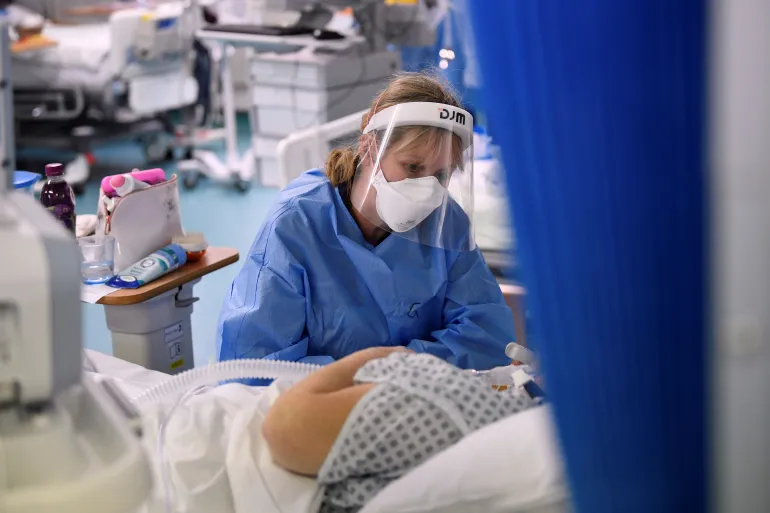The COVID 19 UK experience has left a lasting impact on nearly every aspect of life across the United Kingdom. From nationwide lockdowns and health service strain to vaccine rollouts and economic recovery, the COVID-19 pandemic redefined modern public health in the UK. Though restrictions have largely lifted, the virus and its consequences continue to influence policies, communities, and healthcare systems.
This detailed guide explores how the UK responded to COVID-19, the measures taken to mitigate its spread, the success and challenges of the vaccination campaign, and what the future holds. Whether you’re seeking information on how the pandemic unfolded, updates on post-pandemic health strategies, or current COVID-19 status in the UK, this article provides a reliable and structured resource.
The COVID-19 Outbreak in the UK: A Timeline
Initial Detection and Government Response
- January 2020: The first confirmed cases of COVID-19 in the UK were reported.
- March 2020: The UK entered its first national lockdown following a rapid rise in cases.
- Summer 2020: Lockdowns were eased, but regional outbreaks led to localized restrictions.
- Autumn 2020 – Winter 2021: A second wave hit, resulting in tiered restrictions and another national lockdown.
Variants and Waves
- Alpha Variant (B.1.1.7): Identified in Kent, this variant led to increased transmission in late 2020.
- Delta Variant: Drove the third wave during mid-2021, with hospitalisations rising again.
- Omicron Variant: Surfaced in late 2021, noted for high transmissibility but milder illness in most vaccinated individuals.
Key Measures Taken by the UK Government
Nationwide Lockdowns
The UK implemented multiple lockdowns to reduce transmission:
- Closure of schools, restaurants, and non-essential retail
- Stay-at-home orders and limits on gatherings
- Travel bans and quarantine requirements
Testing and Tracing
The NHS Test and Trace system was introduced to identify and isolate COVID-positive individuals and their contacts. It included:
- PCR and rapid antigen testing
- NHS COVID-19 app for exposure notifications
Face Coverings and Social Distancing
Rules evolved to mandate:
- Face masks on public transport and in indoor settings
- Social distancing guidelines (originally 2 metres, later reduced)
Healthcare System Impact
NHS Under Pressure
COVID-19 placed significant strain on the National Health Service:
- ICU bed shortages and delayed elective surgeries
- Re-deployment of staff to critical care units
- Mental health crisis among healthcare workers
Mental Health and Social Care
- A rise in mental health referrals
- Isolation affected vulnerable populations
- Care homes faced high infection rates and staffing shortages
The UK Vaccination Rollout
Vaccine Approval and Deployment
- The UK was the first country to approve the Pfizer-BioNTech vaccine in December 2020.
- Rollout prioritized frontline workers, elderly populations, and the clinically vulnerable.
- Later phases opened up to all adults and eventually to children over 5.
Types of Vaccines Administered
- Pfizer-BioNTech
- Oxford-AstraZeneca
- Moderna
- Janssen (limited use)
Booster Campaigns
Multiple booster drives were launched to counter emerging variants and waning immunity:
- First booster in late 2021
- Additional spring and autumn boosters for at-risk groups
Public Compliance and Controversies
High Compliance, Mixed Reactions
Most citizens followed guidance during peak waves, but public trust fluctuated due to:
- Mixed messaging from authorities
- High-profile political figures breaking lockdown rules
- Vaccine misinformation on social media
Legal and Ethical Debates
Topics of public debate included:
- Vaccine mandates for NHS staff (later dropped)
- Civil liberty concerns regarding lockdown measures
- Privacy concerns over digital vaccine passports
Economic and Employment Impact
Economic Decline and Recovery
- GDP fell sharply in 2020 but rebounded in 2021–2022.
- Government support included furlough schemes, self-employment grants, and business loans.
Unemployment and Industry Disruption
- Hospitality, tourism, and aviation were hardest hit.
- Remote work and digital services surged across other sectors.
Education and Schooling Adjustments
Remote Learning Challenges
- Schools closed during lockdowns, shifting to online learning.
- Disparities in digital access highlighted the digital divide.
Exams and Grading Controversies
- Standard exams were cancelled or modified.
- Predicted grades and algorithms sparked public backlash and revisions.
Long COVID in the UK
What Is Long COVID?
Some individuals experienced prolonged symptoms:
- Fatigue
- Brain fog
- Breathing difficulties
NHS Long COVID Clinics
The government established dedicated services to treat and monitor long COVID patients, particularly among working-age adults and healthcare workers.
Post-Pandemic Life: Where the UK Stands Now
Living with COVID Strategy
As of mid-2023 and beyond, the UK adopted a “living with COVID” approach:
- No legal restrictions
- Continued emphasis on vaccination
- Optional testing, especially for vulnerable populations
Surveillance and Monitoring
The Office for National Statistics continues to monitor:
- Infection trends
- Hospital admissions
- Excess mortality and variant tracking
Frequently Asked Questions (FAQ)
1. Is COVID-19 still a threat in the UK?
While transmission continues at a lower rate, COVID-19 is largely manageable thanks to vaccinations and hybrid immunity.
2. Are vaccines still available?
Yes, vaccines and boosters are available through the NHS, especially for older and immunocompromised individuals.
3. Do I need to isolate if I test positive?
As of now, isolation is no longer legally required, but it’s recommended to stay home to avoid spreading the virus.
4. Can I travel to the UK without restrictions?
Most international travel restrictions have been lifted. Entry rules may vary based on variants or international outbreaks.
Summary: COVID 19 UK in Review
The COVID 19 UK experience has been one of resilience, adaptation, and transformation. From initial shockwaves to vaccine innovation, the country has navigated an unprecedented public health crisis with a mix of success and struggle. Though the virus is still present, the systems in place—from healthcare and surveillance to personal behavior—have evolved to manage its ongoing presence.
As the UK looks forward, lessons from the pandemic will shape public health policy, emergency planning, and community support systems for years to come.

